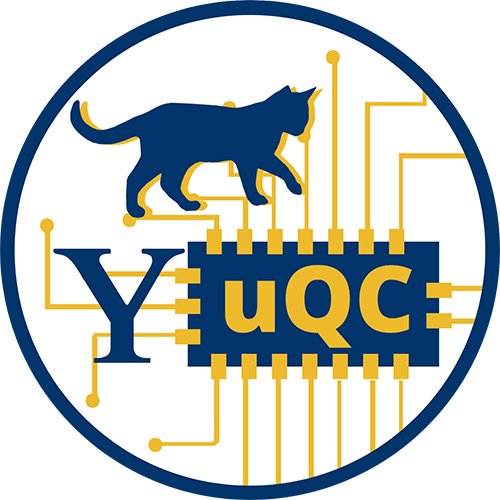A Quantum Group for Everyone

This article originally appeared in Yale Engineering magazine.
Quantum science can be a little intimidating — even Einstein once called it “spooky.” So it makes sense that it has developed a reputation as an all-or-nothing kind of commitment. Dabblers needn’t apply.
But a new student group is looking to change that. The Yale Undergraduate Quantum Computing (YuQC) group was founded by Shantanu Jha, a math and physics major who graduated in December. Thinking of all the ways that quantum computing can be applied to other fields, Jha said he was inspired to engage a broad spectrum of other students with the emerging field.
“I did a lot of quantum engineering research at Yale, and I had a group of friends who were interested in this stuff — that really kindled my interest in the field,” he said. “I wanted to build a community, and I realized that a lot of people are interested in quantum computing who don't come from the traditional background that you might associate with quantum computing.”
 Since it formed in the fall of 2020, the group has hosted social hours for its members, organized a quantum computing hackathon, and developed its Invited Speaker Series, which included presentations from YuQC advisors, Steven Girvin, the Eugene Higgins Professor of Physics, and Michel Devoret, the Frederick W. Beinecke Professor of Applied Physics.
Since it formed in the fall of 2020, the group has hosted social hours for its members, organized a quantum computing hackathon, and developed its Invited Speaker Series, which included presentations from YuQC advisors, Steven Girvin, the Eugene Higgins Professor of Physics, and Michel Devoret, the Frederick W. Beinecke Professor of Applied Physics.
Key to the group’s success is the diversity of the members’ backgrounds, said Nikhil Harle ’23, a YuQC board member and one of the group’s earliest members.
“I think a big misconception about this field is that you have to have the ‘right’ background or the ‘right’ degree to be able to contribute something,” Harle said. “And through our programming, we’ve been working to challenge that.”
In October, they held a meeting to gauge the level of interest. It turned out that there was a lot. More than 80 people signed up, from about 20 different majors. Some of these majors were the expected ones — physics, computer science, and math — but there were also those from economics, philosophy, psychology, literature, and others. Further, many of these students from non-traditional majors signed up for leadership positions in the group.
For a student group just getting off the ground — and primarily working remotely — the YuQC managed to quickly rack up some major successes. Working with a quantum student group at Stanford, they created the Quantum Coalition, an international network of university students that works to promote quantum information science across the world. It was through this partnership that they organized the Quantum Coalition Hackathon (QC Hack), an event that attracted 2,100 entrants from 80 countries. The event was sponsored by 10 company sponsors and included challenges proposed by five companies, each of which were to be solved in a 24-hour period. About half were technical, and half were more creative. The winning teams for each would present their projects, walking the audience through their process.
Besides attracting much more interest — and from a wider range of students — than they had anticipated, the organizers said the event went a long way to advance its goal of opening up quantum computing beyond those in the core fields of research.
“All of this was expressly open to beginners, and we tried to be very clear that you don’t have to have any experience to be part of this, and we ended up having a lot of beginners joining,” Harle said. “We just wanted to show people that you don't have to be an expert — you can come in and learn. I think we proved that with the hackathon.”
YuQC’s current co-presidents, Ayelet Kalfus ’24 and Allen Mi ’22, said one of their goals is to keep building on the group’s momentum — including expanding the reach of the Quantum Coalition, and building on QC Hack.
“We’re deeply excited about having all of our members on campus this semester,” said Kalfus. “Many of our members had never met face to face and we think it will be awesome to continue our projects and talk in person as much as possible.”
They’re also continuing the group’s interdisciplinary focus. The more students of varied educational backgrounds study quantum computing, Mi notes, the quicker the field can advance. For example, he said, if you want to build a quantum computer, you have to know about designing integrated circuits so that you can send pulses to the device. You also need some specific engineering knowledge because you want to build a dilution fridge that can keep the device very cool, about 70 millikelvins.
“Quantum computing is one area that would benefit a lot from interdisciplinary studies,” Mi said. “For one thing, it’s very new — there hasn't been a specific discipline invented for it. And the other is that it really draws from the best of all kinds of technologies.”

